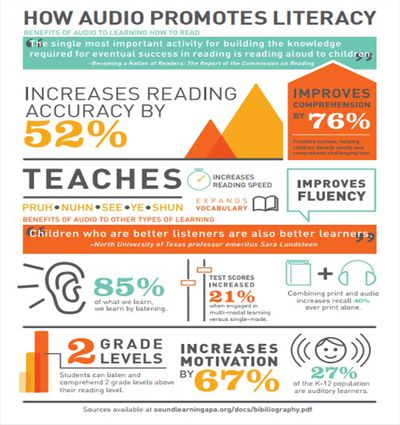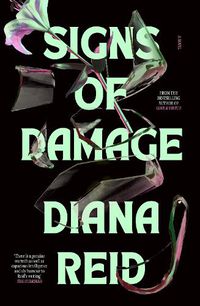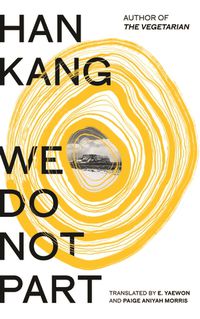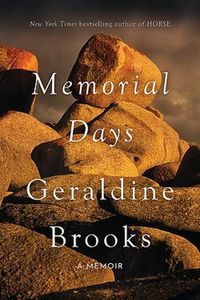Last week I had my first real experience of Reading Matters, the Melbourne YA conference organised by the Centre for Youth Literature. (Previously, I had been the bookseller at the conference where the appetite for books is so high that I didn’t have time to see the panels.) Reading Matters provides high-school students, YA-lit professionals and the public with the opportunity to meet some of the most brilliant local and international stars of YA literature.
The conference was superb, emotional, diverse, fun; it will not be forgotten. Certainly, what was discussed over the two professional days will have a ripple effect. I can’t stress enough that anyone who cares about the future of literature in Australia must ensure that this intelligently put-together conference stays on the calendar for many years to come.
Two days’ worth of panels is difficult to summarise, so instead I’ve picked out some choice quotes and recommendations from the sessions.
The conference kicked off with a panel of three teens, and rightly so. Chris, Kelly and Ena expressed their love of the variety of young adult literature. They preferred imperfect characters and flawed love interests, and hated romance that has been shoe-horned into a story. Said Ena: ‘If they’re in a life or death situation, why are they suddenly making out? They could be doing more important things… like finding food!’
Teen recommendations: These eloquent and well-read teens enjoyed the following books…
- One True Thing by Nicole Hayes
- The Fifth Wave by Rick Yancey
- Messenger of Fear by Michael Grant
- The Sky So Heavy by Claire Zorn
- Forgive Me Leonard Peacock by Matthew Quick
- The First Third by Will Kostakis
It must have been inspiring for the teenage audience to hear that Laurie Halse Anderson not only found it difficult to learn to read but also had a hard time in high school and was never predicted to become a writer, let alone one who has written such ground-breaking books as Speak and Wintergirls. Although her books are often called Issue or Problem Lit, Laurie likes to use the term Resilience Lit. She said: ‘Don’t just focus on what’s happening in chapter three… Get to the end and see what’s happening there.’ I thought this was so true. YA is often dismissed by people who only read the blurb and see ‘cancer’ or ‘suicide’, when in fact one of its trademarks is hope.
Staff recommendations: In Laurie’s honour, we’ve created a small collection of books that fit into her category of
As well as powerful contemporary books, Laurie also writes historical fiction like Chains and Forge. She said, ‘The only class I paid attention to in school was American History… We are a racist society because we don’t understand our history.’
This misunderstanding of history was taken up again by Clare Wright in her fascinating talk about her Stella Prize-winning The Forgotten Rebels of Eureka, the first account of Eureka that acknowledges the role women played. An edition of that book edited for a young adult readership will be released in August: We Are the Rebels: the Women and Men Who Made Eureka.
Staff recommendations: An appetite for more non-fiction aimed at young adults was evident during the teen panel so we’ve also created a collection of recommended
As well as highlighting the importance of writing marginalised people back into history (women, people of colour), the conference focussed on how fiction writers are doing the same in YA. Erin Gough described her desire for her novel, The Flywheel, to show that ‘being a gay teen isn’t an insurmountable thing’. And indigenous author Jared Thomas spoke with passion about how an attempt to exclude him at university made him determined to succeed, and to write about the pressures of being a young indigenous Australian. He then did this to great effect in Calypso Summer.
I was popular with my 11-year-old when I went home with a photograph of Matt Testro, who plays Jake in the ABC3 series Nowhere Boys. We had both watched series one and two with equal enthusiasm, and with the unspoken rule that one would never watch an episode without the other being there. There’s a web-based game to accompany the TV series (which wasn’t developed as just a money-spinning add-on but, rather, was properly integrated from the start), as well as a book (which covers the first series).
Like fellow international guest Laurie Halse Anderson, Sally Gardner was told she’d never amount to much, certainly not as a writer. Sally was fourteen when reading suddenly clicked – before then she was told she was ‘too stupid to learn’ and was sent to a school for ‘maladjusted children’. She waited for years for a word that explained her problem, and when it finally came – dyslexia – she thought: ‘What a stupid word. Can’t say it. Can’t spell it!’ She also said: ‘The non-dyslexic world is always trying to tell us how to live our lives. It’s not a disease.’ Given Sally’s story, what a triumph to win one of the most prestigious literary awards (the Carnegie Medal, for Maggot Moon) as well as many other accolades. Sally recalls being heartened to learn how little formal education Charles Dickens had, and it’s so easy to see how Sally is now that same inspiration for other children who are tested too early, and told too early, what they are or are not capable of.
Jaclyn Moriarty had a totally different journey to writing award-winning YA. With her sisters Liane Moriarty and Nicola Moriarty also successful writers, her family sounds like a modern-day Brontë family (minus the parsonage, poverty and dysfunction). Indeed Jaclyn’s father used to give them pocket money, not for chores, but for stories, and Jaclyn remembers her big sister Liane telling her stories, as well as passing on her own stories to little sister Nicola. Jaclyn was every bit as whimsical and sharp as her wonderful books are. I know many of us cite Feeling Sorry For Celia as a firm favourite, and if you’d heard Jaclyn argue for magic over science against the excellent writer Sean Williams, then you’d be rushing to read her highly original fantasy-contemporary blend: The Colours Of Madeleine.

Stig Weymess is the voice of many Australian audio books and spoke with great enthusiasm about what a valuable way of sharing stories audio books can be. See the infographic on the left for the stats. Audio books are a huge part of the daily routine in my house – they help my sleep-reluctant daughter to nod off, and they help my formerly reading-shy son to get to grips with the stories he’s really interested in.
Staff recommendations: We put together a collection of
Clare Atkins’ Nona and Me is a staff favourite from last year and it was fascinating to hear Clare talk about her first-hand experience living in Arnhem Land. Clare said she was struck by the division between the town and the indigenous community and said she wasn’t trying to represent the entire divide in her debut novel, but to simply tell one girl’s story navigating that divide. She felt that writers could not comprehensively represent such a huge situation. This thought was echoed in many of the panels, emphasising the need for more and more diverse voices and experiences so that all our young people can find themselves in books. As the third international author, Sara Farizan, shared: ‘When you don’t see or hear characters who reflect you, you begin to think there is something wrong with you.’ As a young gay woman in the US, with Iranian heritage, Sara could find ‘no examples of who I could be’. And so, both of her books – If You Could Be Mine and Tell Me Again How A Crush Should Feel – are stories she would have loved to stumble across in the public library where she often sought refuge as a teenager.
Sean Williams was a clever addition to several panels, with his 40+ books career. He decided to begin his new series (first book Jump, second book Crash) with a society in which all people are equal in terms of gender, sexuality and race. So, putting those things aside, Sean then created a system which alienates certain members of society for a reason entirely new to the reader: ‘Abstainers’ refuse to use the d-mat technology which allows people to travel anywhere in the world in a heartbeat, and are therefore marginalised.
I can now report that Tom Taylor’s energy when it comes to celebrating graphic novels knows no bounds. He got our attention by balancing a very heavy chair on his chin and then proceeded to share his huge appetite for comics and his mind-boggling workload. Clearly he never stops, and I suspect that part of this energy comes from the feeling that he still has to legitimise comics, even though their popularity is undeniable. He wrote The Deep specifically for children, because so much of the content of comics is not really suitable for them.
From Amie Kaufman (These Broken Stars) and Will Kostakis The First Third we heard about some of the highly rewarding experiences that come with being a YA author. Both of these Australian authors have worked incredibly hard to make connections with their readers, by being available online, be making time for school visits, and by working with youth groups. The conference really highlighted what opportunities there are for schools, libraries and bookshops to be the meeting points for YA readers and authors.
With that in mind, Readings is delighted to invite you to our own YA panel in July. Click here for details.
I have to give the final nod to Abe Nouk, a completely unforgettable performance poet whose large family (a single mother and eight children) arrived in Australia from Africa with no reading skills. Abe has recently published a poetry collection (Dear Child) and encourages other young people to write and perform, with the message: ‘You have to be courageously kind to yourself to tell your own story.’ Deeply philosophical, warm and funny, many of Abe’s best lessons have come from his mum. ‘Wear shoes with laces,’ she’d tell him, ‘and keep them loose, so that when they come undone you can take a moment to kneel down and reflect, think, be grateful…’
To close, here are some final words from Abe: ‘If you teach me something I’ll forget it, but if you tell me a story I’ll remember it… Tell your story.’





